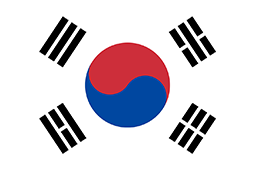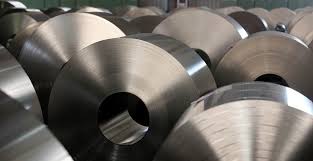
Posco bullish on battery demand


Global EV sales will double this year to about 4mn units, or 4.3pc of total auto volumes, said Posco that is banking on battery materials as its core growth business. Reaching such a scale could signal a "monumental moment" in which the industry moves through its early adopter stage on the way toward a further tripling of market share, the company said.
Posco forecasts global demand for anode and cathode materials rising to 1mn t this year from 780,000 t in 2018. The company targets 2 trillion won ($1.79bn) in annual battery material sales by 2021 as it expands capacity of its plants in South Korea and boosts output from joint ventures in Chile and China.
Posco aims to capture a 20pc share of the global battery materials market as it more than triples its anode materials production capacity to 74,000 t/yr by 2021 and targets a sixfold increase in its cathode segment to 62,000 t/yr by 2022. It plans by April to merge its cathode material producer Posco ESM with the Posco ChemTech unit that makes anode materials to increase efficiency.
South Korea's main EV battery producers LG Chem, Samsung SDI and SK Innovation secured W110 trillion in new contracts with automakers last year and are poised to capitalise in 2019 as global battery sales rise by 70pc to $204bn, Posco said. All of the companies are investing heavily to advance their technology and achieve larger scale production, which will help create barriers to entry for new competition.
Posco said the companies are racing to be in a top tier of manufacturers in an industry where the five largest will command 80pc of global market share. LG Chem and Samsung SDI currently rank second and fourth respectively in market share outside of China, behind only Japan's Panasonic, while SK is sixth.
South Korean automaker Hyundai Motor plans to develop 44 EV models and sell 1.67mn units by 2025, up from its target of 38 models just a year ago. Posco said it expects to see more industry alliances, such as the partnership between US-based General Motors and Japan's Honda, as companies look to ease their investment risks and share technology.
With South Korea's traditional export industries, such as steel and semiconductors, facing growth obstacles, it is time to "accelerate the transformation" into growth industries such as EV batteries, Posco said. But producers must also be prepared for demand barriers because "growth can stagger at any time, and oversupply is always a possibility".


Trump weighs using $2 billion in CHIPS Act funding for critical minerals

Codelco cuts 2025 copper forecast after El Teniente mine collapse

Electra converts debt, launches $30M raise to jumpstart stalled cobalt refinery

Barrick’s Reko Diq in line for $410M ADB backing

Abcourt readies Sleeping Giant mill to pour first gold since 2014

Nevada army depot to serve as base for first US strategic minerals stockpile

SQM boosts lithium supply plans as prices flick higher

Viridis unveils 200Mt initial reserve for Brazil rare earth project

Tailings could meet much of US critical mineral demand – study

Kyrgyzstan kicks off underground gold mining at Kumtor

Kyrgyzstan kicks off underground gold mining at Kumtor

KoBold Metals granted lithium exploration rights in Congo

Freeport Indonesia to wrap up Gresik plant repairs by early September

Energy Fuels soars on Vulcan Elements partnership

Northern Dynasty sticks to proposal in battle to lift Pebble mine veto

Giustra-backed mining firm teams up with informal miners in Colombia

Critical Metals signs agreement to supply rare earth to US government-funded facility

China extends rare earth controls to imported material

Galan Lithium proceeds with $13M financing for Argentina project

Kyrgyzstan kicks off underground gold mining at Kumtor

Freeport Indonesia to wrap up Gresik plant repairs by early September

Energy Fuels soars on Vulcan Elements partnership

Northern Dynasty sticks to proposal in battle to lift Pebble mine veto

Giustra-backed mining firm teams up with informal miners in Colombia

Critical Metals signs agreement to supply rare earth to US government-funded facility

China extends rare earth controls to imported material

Galan Lithium proceeds with $13M financing for Argentina project

Silver price touches $39 as market weighs rate cut outlook

















